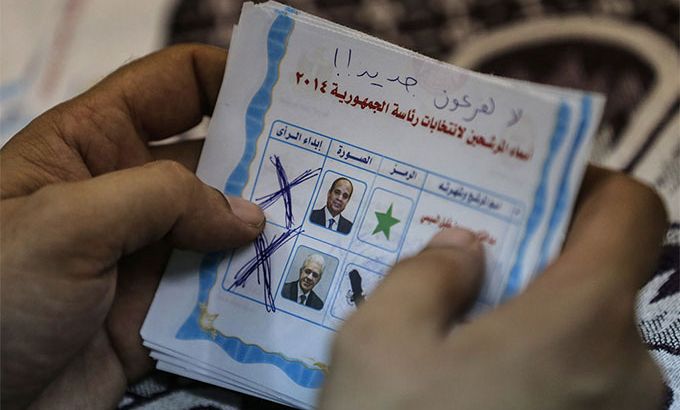
Can Abdel Fattah el-Sisi unite Egyptians?
A low turnout in Egypt’s presidential vote makes it hard for ouster general to fix divisions within society.
Egyptians have voted this week to elect a new president but several groups of young revolutionaries say they will continue their fight against oppression, with some promising to return to Tahrir Square.
These revolutionaries have boycotted the vote, calling it a farce. They were the driving force behind the 2011 revolution that toppled Hosni Mubarak.
Two years later, they threw their support behind Abdel Fattah el-Sisi as he led a coup against the democratically elected president, Mohamed Morsi. But later on, they turned against him.
The Muslim Brotherhood are against the process. They want nothing but a restitution of what they call legitimacy.
The interim government rushed to designate the Brotherhood as a terrorist group, and arrested its leaders and members. Besides these two groups, there are Sisi supporters. Those include remnants of the Mubarak regime, Copts and a big chunk of the business community who also thrived under Mubarak.
So, how can Sisi bring these divided groups together? And what are the dangers if Egypt remains so polarised?
Presenter: Mike Hanna
Guests:
Mohamed El Menshawy: Egyptian journalist based in Washington.
Khalil Anani, adjunct professor of political science at Johns Hopkins University and author of The Muslim Brotherhood in Egypt.
Rasha El Ibiary, a researcher specialising in political communication, as well as a professor at German University in Cairo.